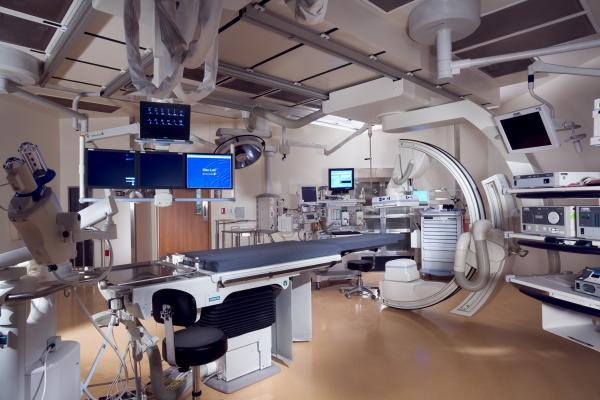
May 13, 2015 — For the first time, cardiac catheterization laboratory stakeholders now have quality metrics that confirm the value of Accreditation for Cardiovascular Excellence (ACE) accreditation. Three new studies validating the benefits of ACE accreditation were presented during the 2015 Society for Cardiovascular Angiography and Interventions (SCAI) Scientific Sessions in San Diego, California, May 6-9.
In the series of studies, Bonnie H. Weiner, M.D., MSEC, MBA, MSCAI, FACC, and colleagues examined multiple quality, performance and outcome measures among 24 facilities that have achieved full ACE accreditation for their diagnostic cardiac catheterization and percutaneous coronary intervention (cath/PCI) programs; the group also studied four facilities that did not meet the rigorous standards for ACE accreditation.
"We found that ACE-accredited cardiac catheterization laboratories were significantly more likely than non-accredited facilities to meet the highest-quality standards for more than a dozen structural, process-related and procedural domains," said Weiner, ACE's chief medical officer. "These data clarify and support the critical role of ACE accreditation in assisting facilities to provide excellent cardiovascular care."
The studies focused on structural and process domains (Abstract 13849) and case-level procedural characteristics (Abstract 13862) that significantly differentiated ACE-accredited cardiac catheterization laboratories from facilities that did not achieve accreditation. Additional survey data highlighted the perceived value of undergoing the ACE external review and accreditation and process (Abstract 13833).
"More than 90 percent of ACE-accredited facilities feel that accreditation adds substantial value to their organization in terms of improved care quality," Weiner said. "The value proposition of ACE accreditation touches every aspect of the cardiac catheterization laboratory, from enhanced patient safety to improved staff confidence and morale."
Data Presented
Performance on multiple outcomes measures differed significantly between cardiac catheterization laboratories that achieved accreditation through ACE and those that did not initially achieve accreditation, according to fthe data. Overall, outcomes on 11 measures related to appropriate use criteria (AUC), procedural findings, and other metrics were significantly different between invasive cardiac cases performed at accredited versus non-accredited facilities.
For more information: www.cvexcel.org


 November 14, 2025
November 14, 2025 









